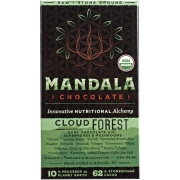Uses for Baobab
In traditional African medicine, baobab fruit is used to treat a number of illnesses (including asthma, fever, diarrhea, malaria, and smallpox). In addition, practitioners of traditional African medicine often use baobab fruit to curb inflammation.
In recent years, manufacturers have begun adding baobab fruit to juices, energy drinks, energy bars and dietary supplements. Often marketed as a “superfruit,” baobab is typically touted as a rich source of antioxidants. For instance, baobab is sometimes said to contain greater amounts of vitamin C than oranges and other citrus fruits.
Baobab-containing products are often marketed as a rich source of antioxidants. Some proponents claim that, due to their antioxidant content, products made with baobab fruit can help slow the aging process and protect against major illnesses like heart disease and cancer. Baobab is also said to protect against inflammation-related conditions (including type 2 diabetes, arthritis, and allergies, as well as heart disease and cancer).
Additionally, baobab fruit is sometimes used as an ingredient in skincare, hair-care and body-care products. Some personal-care products contain baobab oil, which is extracted from the seeds of the baobab tree. Research shows that baobab seeds are rich in essential fatty acids (such as linoleic acid) that may help improve the skin.
Benefits of Baobab
Available research includes a 2009 report published in Critical Reviews in Food Science and Nutrition. Looking at data on the nutritional properties of baobab, the report’s authors found that baobab fruit is rich in antioxidants, including vitamin C.
In an earlier report (published in Plant Foods for Human Nutrition in 2004), scientists determined that baobab fruit contains significant amounts of essential minerals (including calcium, potassium, and magnesium).

